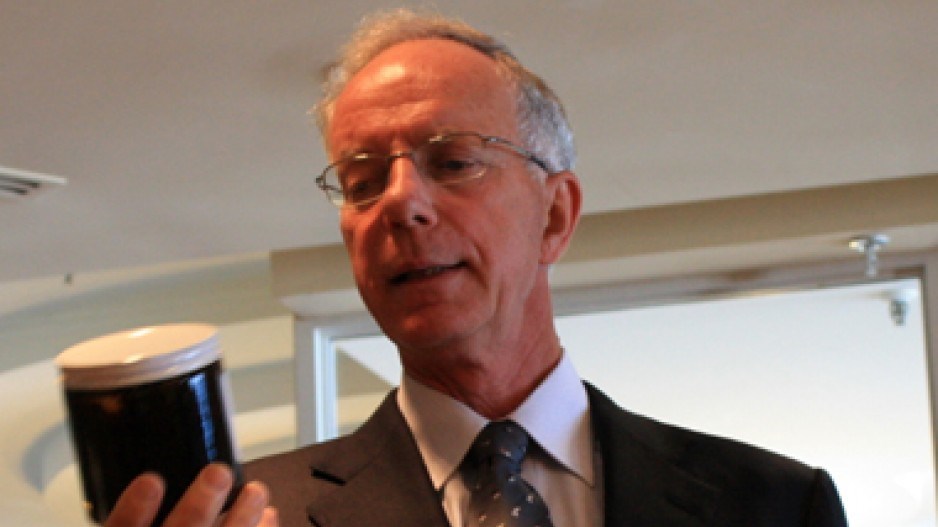Newspaper baron David Black aims to be the catalyst for a $13 billion oil refinery in Kitimat by spending "a few million" dollars of his own money on a provincial environmental assessment.
His goal, he told a press conference, is not primarily to make money. Instead, it is to help the next generation by providing not only 6,000 construction jobs, for the six years that it would take to build the refinery, but also 3,000 permanent full-time jobs once the refinery is built.
"I really worry about the next generation. There's a lot of kids without jobs, without decent jobs," he said. "Here's an opportunity."
Black has spoken with government officials, First Nation groups, oil company executives and Enbridge officials. So far, no one has expressed strong support for his idea.
Enbridge's oil company partners in the Northern Gateway pipeline oppose Black's refinery, Black said. That's because Black's refinery would process all of the oil, thereby having a monopoly on buying the product. Were raw oil to be shipped, the oil producers would have a diversity of potential customers in China.
New York bankers, however, were so impressed with Black's pitch that they told him that they would be able to raise $13 billion in a week if the pipeline is built and the refinery passes the environmental assessment, he said.
The project's biggest challenge is that it depends on Enbridge Inc. getting the green light to build its controversial Northern Gateway pipeline from the Alberta oil sands through B.C. to Kitimat.
"If the pipeline doesn't go ahead, there's no refinery," Black said at an August 17 press conference. "And, if Enbridge can't assure us that they'll build a pipeline that doesn't leak, we shouldn't do it."
Much opposition to the pipeline stems from environmentalists who fear that tankers carrying oil from the pipeline will run aground as they navigate the B.C. coast, causing a spill that would be an environmental catastrophe.
Holding up jars of refined fuel and raw crude bitumen, Black explained that refined fuels are far less burdensome were they to be spilled in the ocean.
His refinery would create gasoline, kerosene and jet fuel – each of which would mostly evaporate if they were spilled in the ocean. That is in contrast with unrefined oil, such as that which spilled in the Gulf of Mexico two years ago, causing severe damage to coastlines and wildlife.
Black chose B.C. as the location for his refinery because it is cheaper to build and operate it here than it would be to build it in either Alberta or China.
Much of the construction related to the pipeline would take place in China using low-wage labour. Parts would then be sent by freighter to B.C. to be assembled. Drastically lower prices for natural gas in B.C. than in China make the refinery more cost-efficient to operate here.
Scarce labour in Alberta would make the refinery more expensive to operate in that province. And construction costs in Alberta would be higher because of labour shortages as well as higher transportation costs for the Chinese-manufactured parts of the refinery.
"If the question is, 'Is it economically feasible?' the answer is 'Yes.'" Black said. "The numbers all pan out."




